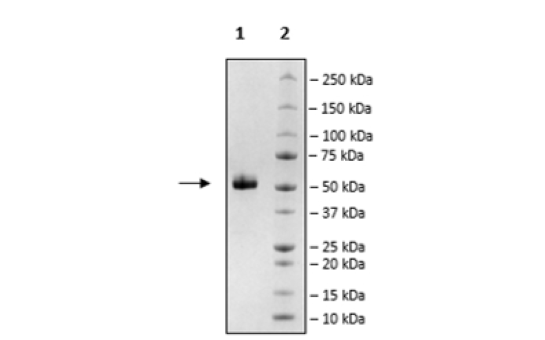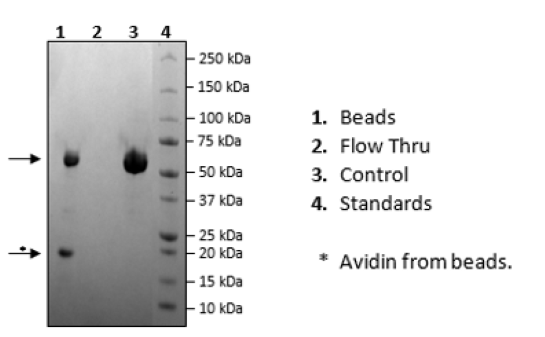CD4, Avi-Tag, His-Tag, Biotin-Labeled Recombinant
Recombinant human CD4, encompassing amino acids 26-396. This construct contains a C-terminal Avi-Tag™ followed by an His-tag (6xHis). This protein was affinity purified.
≥90%
Aqueous buffer solution.
8 mM phosphate, pH 7.4, 110 mM NaCl, 2.2 mM KCl, and 20% glycerol
This protein is enzymatically biotinylated using Avi-Tag™ technology. Biotinylation is confirmed to be ≥90%.
For more information on enzymatic biotinylation, please see our Tech Note.
CD4 (cluster of differentiation 4) is part of the immunoglobulin superfamily, and it can be found in T-helper cells, monocytes, macrophages, and dendritic cells. It is a co-receptor in the TCR (T-cell receptor), binding to MHC (major histocompatibility complex) class II molecules. CD4 binds to the tyrosine kinase Lck (lymphocyte-specific protein tyrosine kinase), which phosphorylates the ITAM (immunoreceptor tyrosine activation motifs) domain of the CD3, activating CD3 related signaling. CD4 is a typical T cell marker of T helper cells, and it has been linked to cancer, autoimmune diseases such as vitiligo and type I diabetes. In addition, HIV-1 makes use of CD4 to trigger viral envelope protein conformational changes that allow cell infection. Ibalizumab, an anti-CD4 antibody, is currently used in the treatment of HIV, being considered a first-in-class medication. Further studies into CD4 and potential strategies around it may benefit patients and CD4 related diseases.



